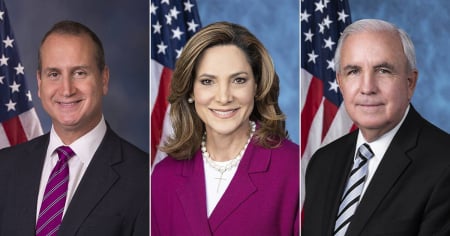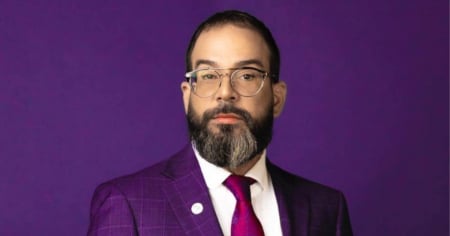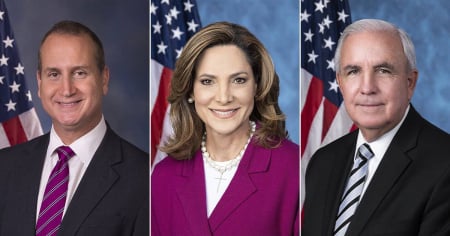In recent hours, Cuban-American congressman Carlos Giménez has publicly defended the letter he sent this week to the U.S. Department of Treasury, in which he requests the suspension of travel and remittances to Cuba.
In statements to Univision, he justified his proposal by stating that "each flight brings in more revenue for the regime, each remittance provides more income for the regime."
When asked whether these measures will end up harming the average citizen more than the Cuban government itself, Giménez was emphatic: “They are affected because there is a dictatorship; we need to eliminate the dictatorship. We are targeting the dictatorship, not the Cuban people,” he emphasized.
He also added that what matters most to him is "the freedom of Cuba."
In other statements, in that case for Telemundo 51, the legislator insisted on his position: “We know that these are sources of income for the regime and we need to stop all sources of income coming from the United States, because we need to stop giving oxygen to this regime.”
According to what he explained, every dollar that enters the island ultimately benefits the government, either directly or indirectly.
The Republican lawmaker argues that his proposals would deprive the regime of resources that are used to "oppress its own people."
"It is time for the freedom of Cuba, and I hope that President Trump will do everything possible to achieve that," he stated.
Although she acknowledged that these are severe measures, she considers them inevitable: “It is difficult, but sometimes difficult measures have to be taken to achieve what you ultimately want, and the end goal is the elimination of this regime and freedom for the people of Cuba.”
Reactions among Cubans residing in the U.S.
In South Florida, the initiative has been seen as a direct attack on family ties. In a community where it is common to send money, medicines, or visit parents and siblings, the suspension of flights and remittances would be a severe blow.
“ They will never pressure the regime, because the regime has many ways to provide for themselves and they will continue as they are,” stated a Cuban interviewed by Telemundo 51.
"They're doing nothing but hardening our families over there, and here they leave us with our hands tied," lamented another citizen of the island residing in the U.S.
In addition to the human drama, the proposal could also have local economic repercussions, affecting small and medium-sized enterprises that rely on services to Cuba.
Tatiana Domínguez, owner of Gallo Travel, expressed her concern.
"By not being able to offer those services, our businesses would be on the brink of bankruptcy... I know mothers who tell me, ‘I have to go to Cuba regardless of who is in power’," he said.
Critics of the measure warns that extreme isolation has failed in the past as a strategy to weaken the Cuban regime, and that it only increases the suffering of the population without yielding concrete results.
Even Mauricio Claver Carone, the U.S. Special Envoy for Latin America, expressed reservations: "These are of the old tools, I would say. I believe we can be more creative, but I obviously understand and it comes from a good place." Giménez's proposal reignites an old and profound debate within the Cuban diaspora: How to confront a dictatorial regime without making the people who already live under its yoke pay the price?
Controversial request
The request was formalized on April 2 through a letter addressed to the Secretary of the Treasury, Scott Bessent, in which the legislator from Florida's District 28 urged the U.S. government to take more aggressive actions against the Cuban communist regime.
The congressman justified his request by appealing to national security and U.S. foreign policy, recalling that Cuba is included on the list of State Sponsors of Terrorism.
"The regime in Cuba is on the list of State Sponsors of Terrorism, harbors fugitives from U.S. justice, and poses a clear threat to the security of the United States and our citizens," he warned.
"This is a matter of great importance for the Cuban-American community and for millions of Americans who value freedom, democracy, and human rights as guiding principles," he added.
The Republican representative took the opportunity to praise the Cuba policy implemented during Donald Trump's previous term, particularly regarding the restrictions on remittances and travel.
"During President Trump's first term, his leadership in reversing the disastrous appeasement policies of the Obama administration towards the Cuban regime brought hope to those who have long suffered under communist rule," he stated.
Giménez emphasized that the tightening of restrictions on travel and remittances was then received "as a very necessary step to limit the regime's access to resources and currency that it uses to continue exploiting and oppressing the Cuban people.”
Giménez emphasized in the letter the current weakness of the Cuban regime and pointed out that this situation represents a unique opportunity to intensify pressure from Washington. In this context, he urged the Department of the Treasury to act decisively and to "take swift and decisive measures."
The legislator used a strong tone to refer to the current state of the Cuban regime, which he described as fragile and in decline.
"The murderous dictatorship in Cuba is on life support; the regime can't even keep the lights on [...] The United States must support the Cuban people to overthrow this pathetic gang once and for all," he added.
"I look forward to your continued leadership on this very important issue and I am willing to work with you to ensure that the Cuban people are not abandoned in their struggle for freedom. The time is now," he concluded.
Frequently asked questions about Carlos Giménez's proposal to suspend travel and remittances to Cuba
What is Carlos Giménez's proposal regarding travel and remittances to Cuba?
Carlos Giménez, Cuban-American congressman, has proposed to suspend all travel and remittances from the U.S. to Cuba. According to Giménez, these actions are necessary to cut off the sources of income for the Cuban regime, which uses these resources to oppress the Cuban people.
How has the Cuban-American community reacted to this proposal?
The proposal has sparked controversy within the Cuban-American community, particularly in Southern Florida. Many believe that these measures will harm families in Cuba, who rely on remittances and travel for their livelihood. Additionally, there are concerns that it will impact local businesses that depend on these services.
What arguments does Carlos Giménez use to justify his proposal?
Giménez argues that every dollar that arrives in Cuba from the U.S. strengthens the Cuban government. He claims that suspending travel and remittances is a way to pressure the Cuban regime, by depriving it of resources it uses to maintain its power and suppress the people.
What criticisms has the proposal to suspend travel and remittances to Cuba received?
The proposal has been criticized for being a strategy that has been implemented in the past without success. Critics claim that it only increases the suffering of the Cuban people without effectively weakening the regime. Furthermore, it is considered a measure that repeats the ineffective policies of the past.
Filed under:





